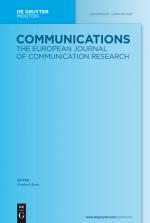Citation:

Abstract:
This article investigates how voters made sense of the Dutch EU constitutional referendum. Based on a series of focus group interviews, it identifies what information people based their understandings on, and traces the relations they draw between concepts in their own accounts of their vote choices. Applying a cognitive connectionist perspective on the construction of meaning, it models people's considerations as paths across semantic networks. It finds that people shared considerable parts of the knowledge underlying their constructions, but used this information quite differently. They strategically selected frames from their information environment, and reframed contrary arguments to fit their constructions. Yes- and No-voters drew in systematically different additional information, while simultaneously engaging idiosyncratic concerns to personalize their accounts. People's understandings are thus informed and constrained, but by no means determined, by public discourse. Highlighting people's activity and creativity, this paper calls for a stronger audience perspective in political communication research.

